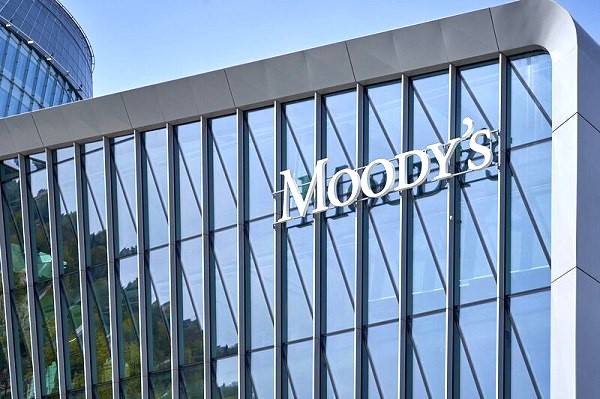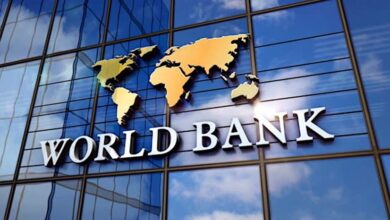Ghana’s creditworthiness up as Moody’s raises rating to ‘Caa2’

Global credit ratings agency Moody’s has upgraded Ghana’s long-term local and foreign currency issuer ratings from ‘Caa3’ and ‘Ca’ to ‘Caa2,’ signalling a marked improvement in the country’s creditworthiness.
This positive development is largely attributed to Ghana’s extensive debt restructuring efforts and the fiscal support provided by the International Monetary Fund (IMF) under its $3 billion loan programme.
Moody’s also revised Ghana’s outlook from ‘stable’ to ‘positive,’ indicating the potential for further reductions in liquidity risks as the country continues its fiscal consolidation. “The positive outlook reflects the potential for liquidity risk to ease amid ongoing fiscal consolidation efforts supported by an IMF programme,” Moody’s stated. This upgrade comes at a time when Ghana is making headway in stabilizing its economy following a prolonged period of financial distress.
The turnaround in Ghana’s credit rating comes on the heels of the country’s third review with the IMF. In October 2024, Ghana successfully completed a $13 billion debt restructuring deal, gaining the approval of over 90% of its bondholders. This restructuring plan is projected to reduce Ghana’s debt by $4.7 billion and provide cash flow relief of $4.4 billion over the duration of the IMF programme, which is expected to run until 2026.
Economic Challenges and the IMF Bailout
Ghana’s economic woes, which led to its request for the IMF bailout, began long before the current recovery. For much of the past decade, the West African nation struggled with mounting debt, spiraling inflation, and weakening currency reserves. These challenges reached a crisis point in 2022 when Ghana defaulted on nearly $30 billion in external debt, leading to a loss of investor confidence and exacerbating the country’s liquidity crisis.
A combination of factors contributed to this financial predicament. The COVID-19 pandemic severely impacted key sectors of the economy, including tourism and exports like cocoa and oil, while government expenditures soared. Ghana’s external debt ballooned as the country borrowed heavily to support infrastructure development and social programmes, which added strain to the national budget. Additionally, the sharp depreciation of the Ghanaian cedi and rising inflation—fueled by global supply chain disruptions and high energy costs—further eroded the country’s fiscal stability.
In response, the government turned to the IMF in 2022, seeking financial support to restructure its debt and restore macroeconomic stability. The IMF approved a $3 billion loan package, which was designed to provide the necessary fiscal relief while enforcing stringent reforms aimed at reducing the budget deficit, curbing inflation, and promoting sustainable economic growth.
The debt restructuring that followed was a critical component of Ghana’s recovery plan. The successful negotiations with bondholders have offered the country significant breathing space by reducing immediate debt obligations and improving liquidity, allowing the government to redirect resources toward reviving economic growth.
Signs of Economic Recovery
Despite the immense challenges, Ghana’s economy has shown signs of recovery in recent months. According to the Ghana Statistical Service, the economy grew by 6.9% in the second quarter of 2024, the highest rate in five years, signaling a gradual return to stability. Sectors such as agriculture, mining, and services have been key drivers of this growth, boosted by government efforts to promote industrialization and job creation.
Moody’s expects that Ghana’s debt trajectory will continue to improve as the government resumes payments on its restructured obligations, although the road to full fiscal stability remains long. With the IMF programme running until 2026, the government has pledged to maintain its commitment to reforms, which include improving public financial management, enhancing revenue collection, and tightening spending controls.
The combination of debt relief, IMF-backed reforms, and economic recovery measures has set Ghana on a path to fiscal consolidation. However, the success of these efforts will largely depend on the country’s ability to navigate the global economic environment, especially given potential risks such as rising global interest rates and fluctuations in commodity prices, which could affect Ghana’s export revenues.
As Ghana continues to implement its economic recovery plan, the Moody’s credit rating upgrade serves as a positive signal to investors and financial markets. However, experts caution that sustained progress will require careful management of public finances, adherence to the IMF programme’s conditions, and continued efforts to stimulate growth in key sectors of the economy.
The debt restructuring, alongside prudent fiscal policies, will be essential in ensuring that Ghana remains on a path to long-term stability and that the hardships faced by Ghanaians, particularly during the worst of the crisis, do not resurface.




